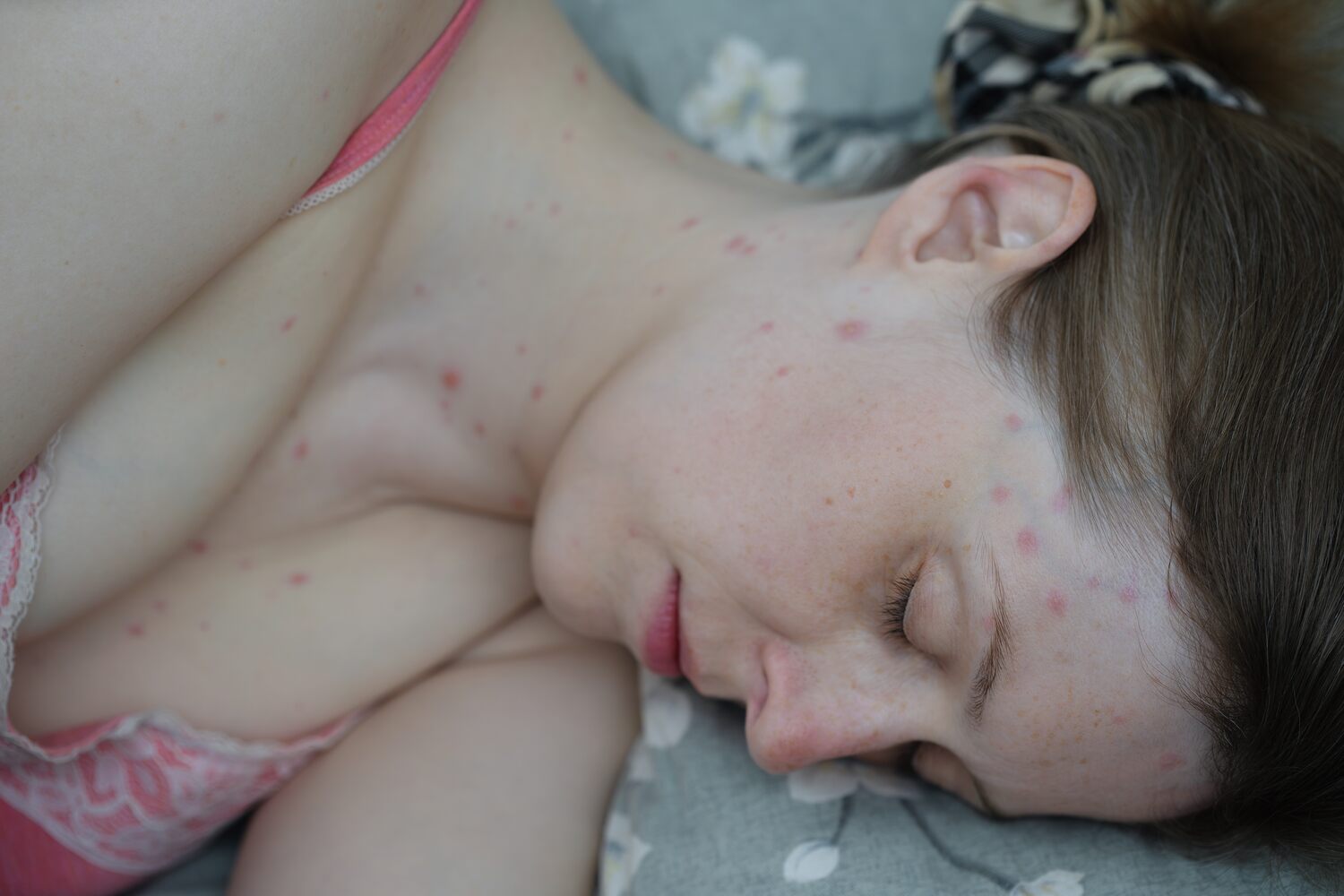
Chicken pox during pregnancy can be of great concern for both the mother and the developing baby. If you are expecting and are not immune to chickenpox then you need to be very careful. You need to be watchful about sick people around you so as to make sure that your pregnancy journey remains smooth.
Chickenpox is a highly contagious disease that mostly happens during childhood. This is the reason that, by adulthood, most of the people are either immune or vaccinated for chickenpox. Nowadays, most of the children receive the vaccine as a part of their routine immunization schedule.
In This Article
- What Is Chicken Pox Disease?
- What Are The Symptoms Of Chickenpox?
- How Does Chickenpox Spread?
- How Can Chickenpox During Pregnancy Cause Problems For You And Your Baby?
- How Is Chickenpox Diagnosed?
- What Are The Risks Associated With Chickenpox In Pregnancy?
- How Do You Treat Chickenpox When Pregnant?
- Chicken Pox Vaccination In Pregnancy
- Chicken Pox Near Delivery Date
- What Precautions Should Be Taken During Chickenpox?
- FAQ’s
What Is Chicken Pox Disease?
Chickenpox, or varicella, is an airborne disease that usually transmits through droplets spread from an infectious person to healthy individuals. Varicella is a highly contagious viral infection caused by VZV or varicella-zoster virus. The virus can be risky when adults contract it, and it can cause complications in pregnant women. The risk of contracting chickenpox in adulthood also exposes one to a condition called chicken pox pneumonia, which can be severe and even life-threatening.[1]
What Are The Symptoms Of Chickenpox?
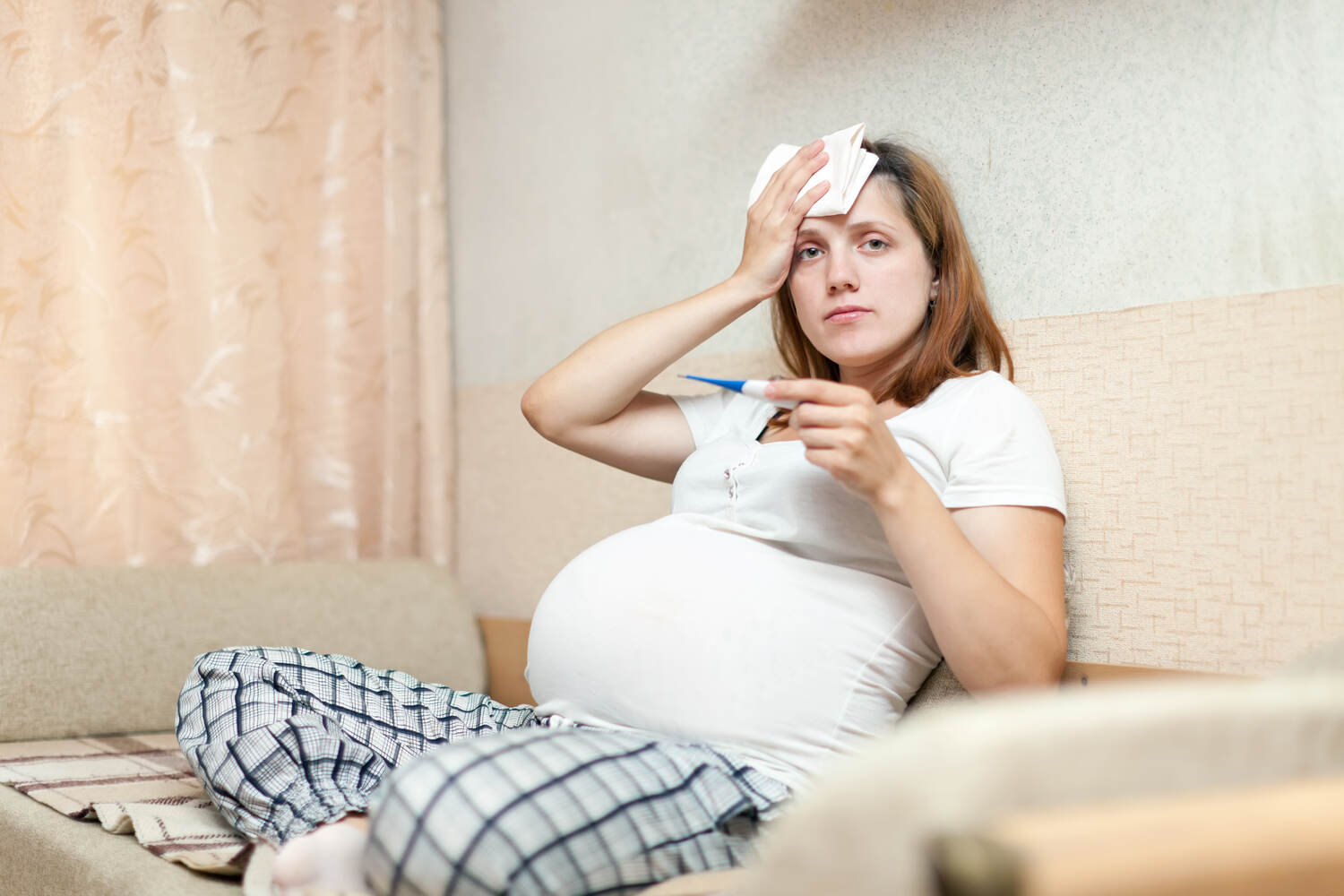
The chickenpox rash appears around 10 to 21 days after exposure to the virus. [2] The ailment begins with a characteristic skin rash in the form of small itchy blisters that eventually form a scab and then take a few more days to heal. The rashes appear first on the face, chest, and back and subsequently spread to the rest of the body. These bumps on the skin also make you contagious for at least 48 hours.
The other common signs and symptoms of chickenpox are:
- Fever
- Lassitude or feeling tired and lethargic.
- Headache and body aches.
- Abdominal discomfort
- Loss of appetite.
- Cough, sore throat, and runny nose in a few cases.
How Does Chickenpox Spread?
You can easily get chickenpox by being in the same room as an infectious person. It is easily spread through surface contact by touching the fluid from the blisters. Droplets spread through sneezing and coughing is also common.
How Can Chickenpox During Pregnancy Cause Problems For You And Your Baby?
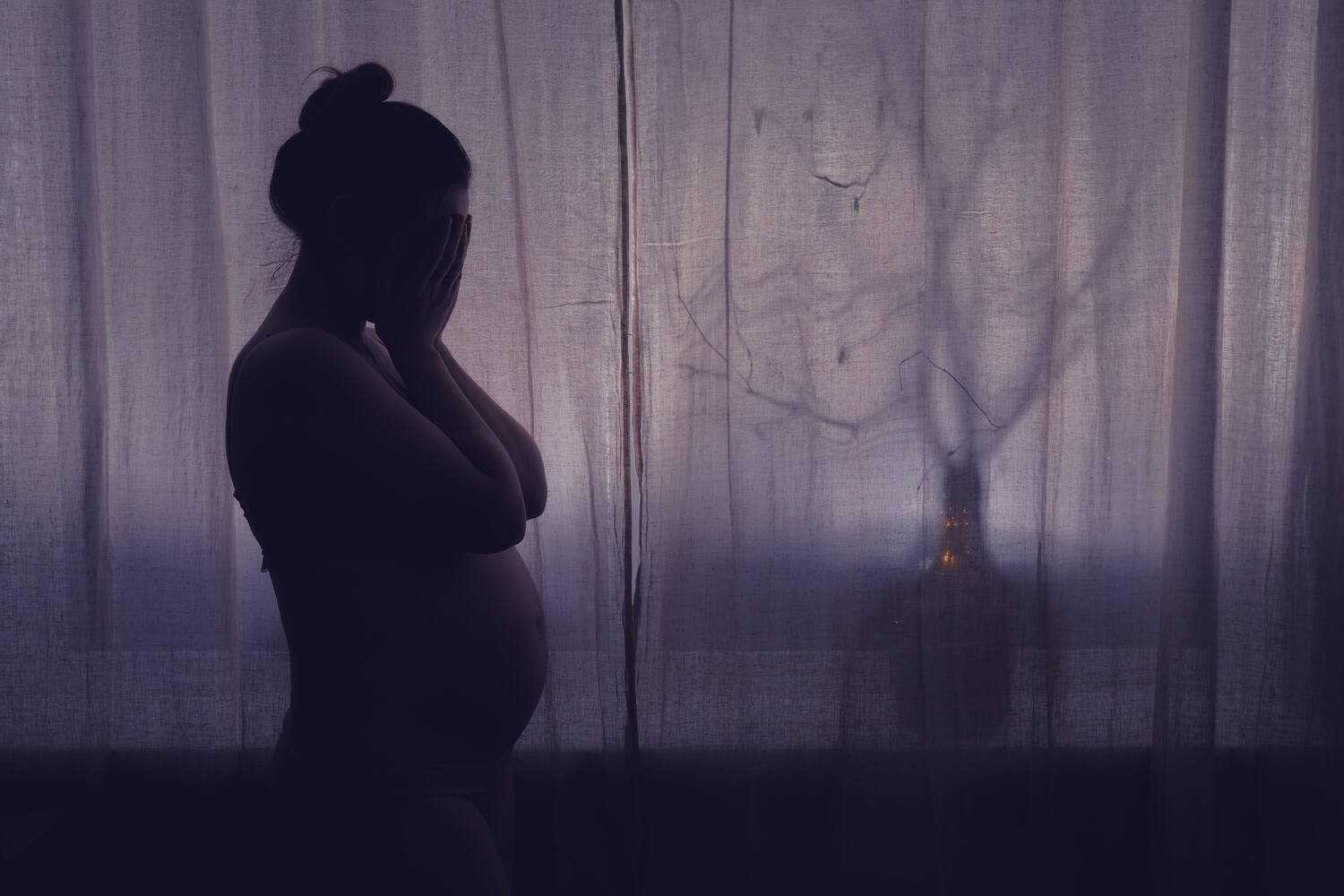
Chickenpox infection during pregnancy can affect the fetus via the placenta and umbilical cord. If the mother is infected by varicella between 13 and 20 weeks of gestation, a serious condition called congenital varicella syndrome causes multiple anomalies.[3]
Varicella can cause the following side effects in a developing baby:
- Brain damage: It can affect the development of the brain causing microcephaly and anencephaly.
- Eye damage: The viral infection can cause damage to the optic stalk, cataracts, and even blindness.
- Growth: can cause growth retardation and low birth weight in the baby.
- Limb damage: causes limb malformation and underdevelopment.
- Skin problems: Skin lesions like thickened skin with scar tissue and red inflammatory changes are common.
- Learning and intellectual disabilities
How Is Chickenpox Diagnosed?
The diagnosis of chickenpox is chiefly dependent on the appearance of a characteristic rash. However, the confirmation of the diagnosis is by the histopathological examination of the vesicle fluid or through PCR testing. [4]
What Are The Risks Associated With Chickenpox In Pregnancy?
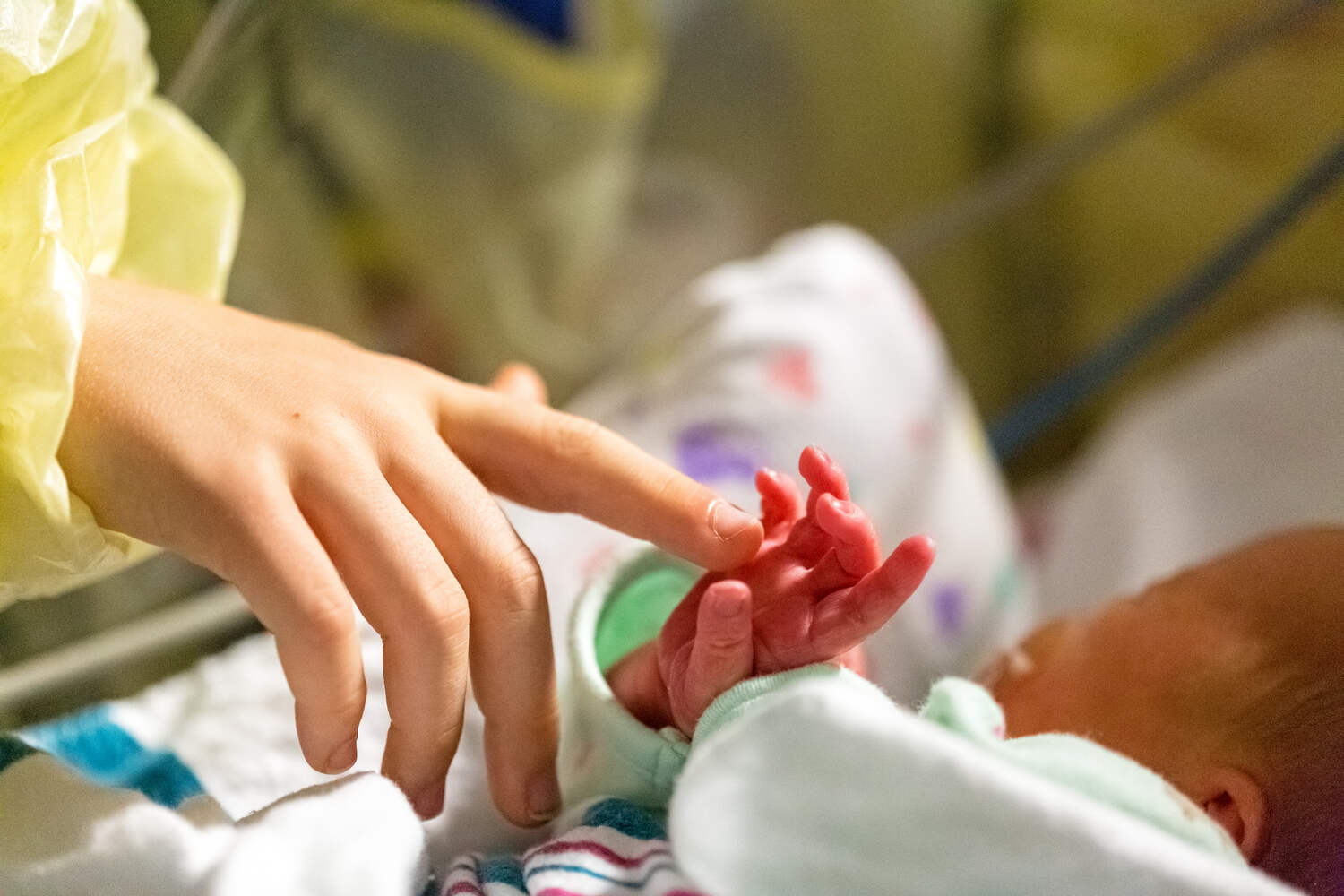
If you have got chickenpox during pregnancy then there are high chances of certain risks to you and your baby. The complications of chickenpox during pregnancy include:
- Chickenpox Pneumonia in the mother.
- Bacterial infection of the skin.
- Preterm birth [5].
- Miscarriage.
- Neonatal chicken pox.
- Varicella zoster syndrome in the baby causes multiple anomalies.
How Do You Treat Chickenpox When Pregnant?
Your doctor can start oral antivirals during pregnancy, either alone or in combination with varicella zoster immunoglobulin. Physicians recommend a complete course of seven days. The antivirals reduce the transmission of infection from the mother to the baby.[6] In case of any complication or severe case like pneumonia, giving intravenous antivirals can be necessary.
Chicken Pox Vaccination In Pregnancy
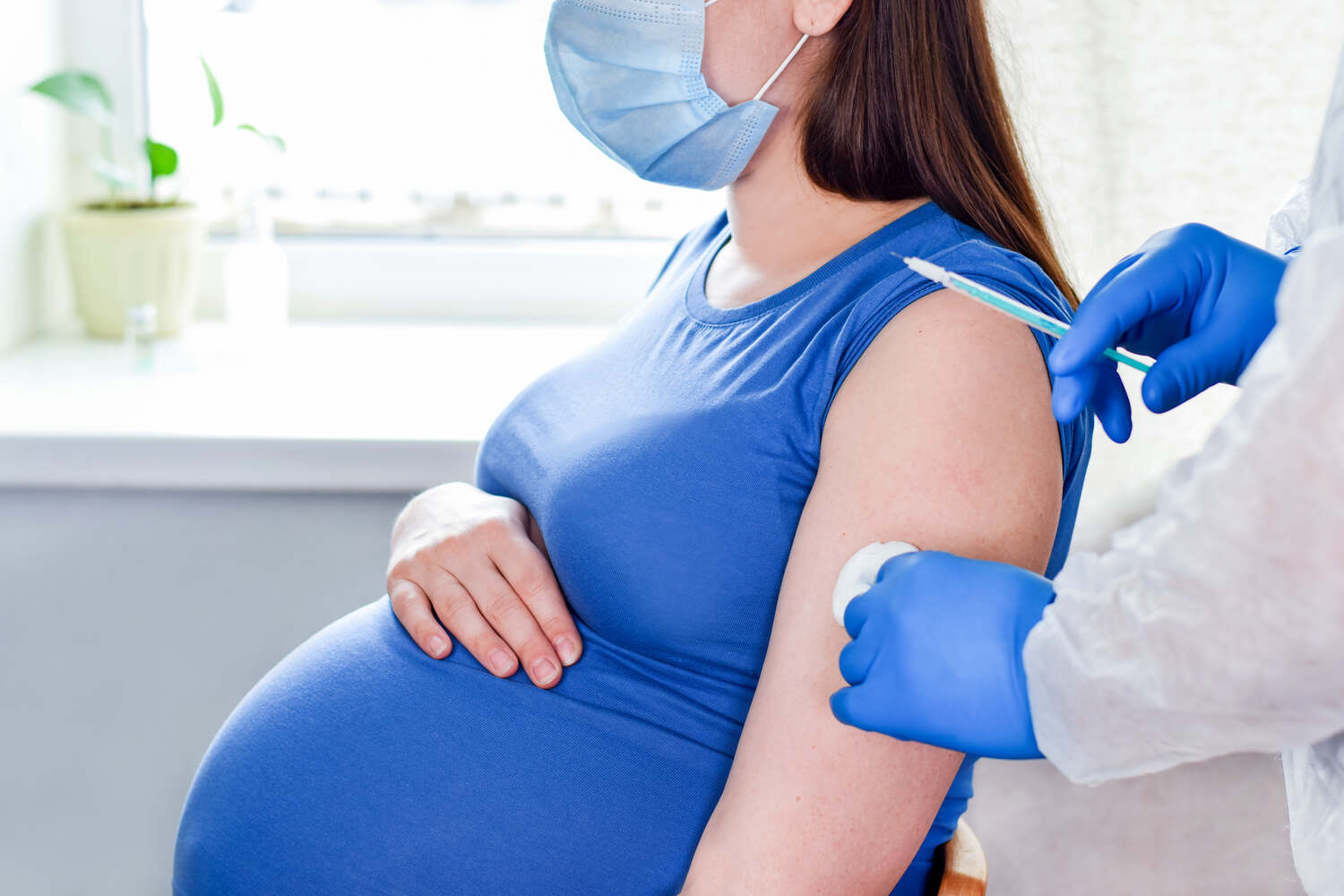
Vaccination is not advisable for pregnant women or women who are trying to conceive. They can, however, take the vaccine within a month after giving birth. The second dose of the vaccine can be given within six to eight weeks after the first dose. There is no need to delay a dose while you are breastfeeding.
The varicella vaccine protects you by initiating your protective cells to produce protective antibodies.
The varicella vaccine is not recommended for the following people:
- Expectant mothers [7]
- People with gelatin allergy
- Persons with neomycin allergy
- Those with immune system disorder
- People taking steroids
Chicken Pox Near Delivery Date
After one contracts chicken pox, the body starts making antibodies to fight the infection. If you get the infection in the early third trimester, your baby will get the antibodies through the placenta. So the baby may be born with the infection but it would not be serious.
However, if you get the infection just about a week before the delivery or about 2 days after the birth, the risk to the baby is high. This is because the baby could not get antibodies from you. Such babies will develop neonatal varicella, or newborn chicken pox, which, if left untreated, can be serious. The risk of severity can greatly decrease, if the baby is administered a dose of varicella-zoster immune globulin (VZIG), which contains antibodies to fight chicken pox, within 2 days after birth.
What Precautions Should Be Taken During Chickenpox?
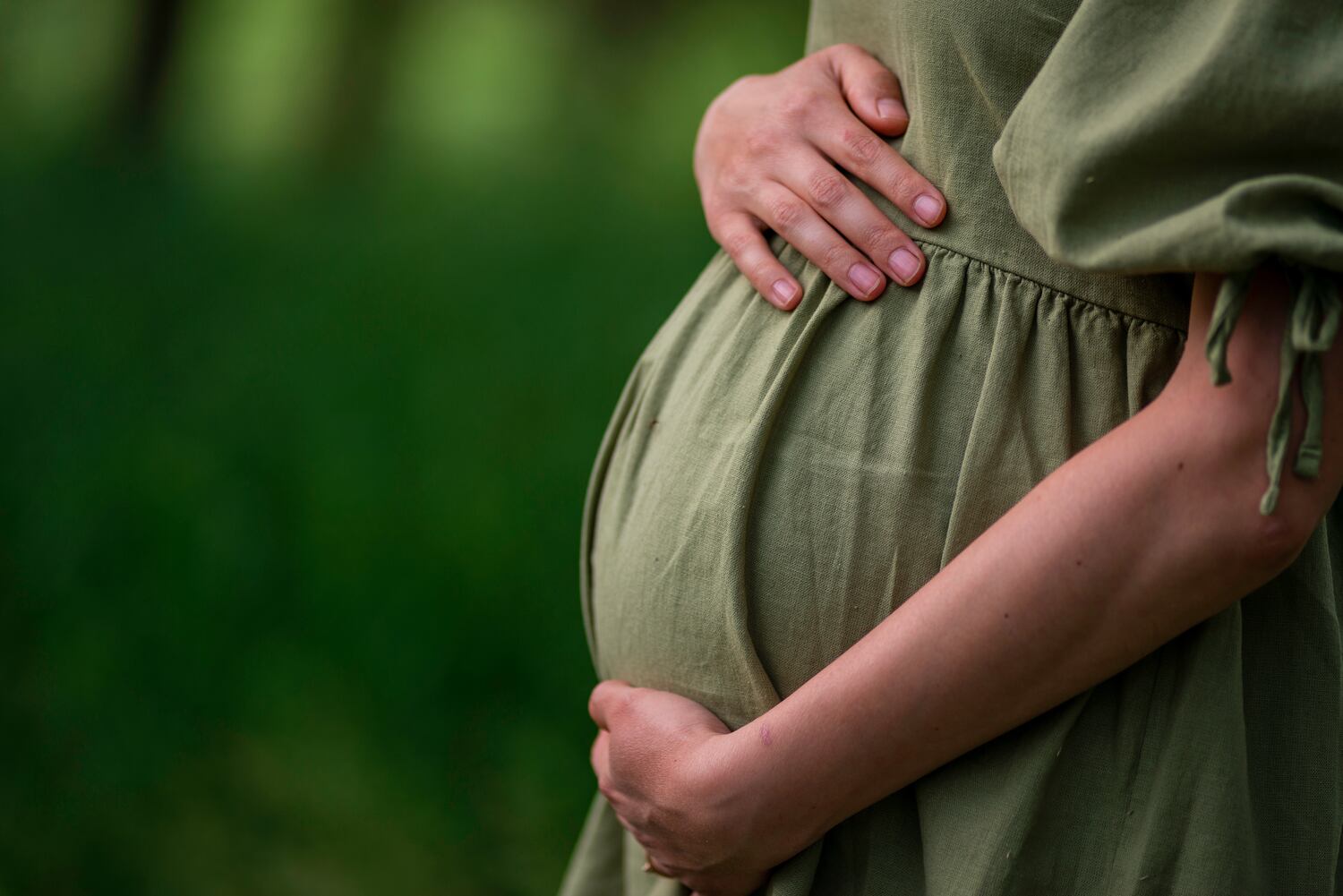
The best way to prevent others from getting the infection is by isolating oneself in a room. Avoid exposing other people at home, especially children, the elderly, and people with weak immunity. Calamine lotions and petroleum jelly can help with the itching.
Hence, chickenpox during pregnancy can be critical for both the expectant mother and the baby. Knowing the symptoms can greatly help in preventing their harmful effects. If you think you have the symptoms of chickenpox, then go to your healthcare provider as soon as possible.
FAQ’s
1. What Happens If I Get Chickenpox While Pregnant?
Getting the infection during pregnancy can affect both the mother and the baby. There is a risk of developing pneumonia in the mother. There is also a risk of certain malformations in the baby.
2. What Are The Major Risks Of A Mother Contracting Chicken Pox During Pregnancy?
The major risk involves the development of congenital varicella syndrome in the baby, which has the potential to cause various congenital malformations in the baby.
3. Can Chickenpox Hurt A Baby?
Yes, chickenpox can be severe in babies under the age of 12 months. The severity of symptoms such as fever is higher in small babies.
References
- Chickenpox Virus Pneumonia – [https://journals.sagepub.com/doi/abs/10.1177/003591576305600410]
- Chickenpox in adults – Clinical management – [https://www.sciencedirect.com/science/article/abs/pii/S0163445308001242]
- Congenital varicella syndrome: A systematic review – [https://www.tandfonline.com/doi/abs/10.3109/01443615.2015.1127905]
- Diagnosis of acute and latent varicella-zoster virus infections using the polymerase chain reaction – [https://onlinelibrary.wiley.com/doi/abs/10.1002/jmv.1890350212]
- Management of chickenpox in pregnant women: an Italian perspective – [https://link.springer.com/article/10.1007/s10096-018-3286-7]
- Varicella Zoster Virus (Chickenpox) Infection in Pregnancy – [https://www.ncbi.nlm.nih.gov/pmc/articles/PMC3155623/]
- No. 274-Management of Varicella Infection (Chickenpox) in Pregnancy – [https://www.sciencedirect.com/science/article/abs/pii/S1701216318304973]

3 Comments
Hi there! This post could not be written any better! Reading this post reminds me of my good old room mate! He always kept talking about this. I will forward this article to him. Fairly certain he will have a good read. Many thanks for sharing!
Super-Duper website! I am loving it!! Will be back later to read some more. I am bookmarking your feeds also.
you’re in reality a good webmaster. The site loading speed is amazing. It seems that you are doing any unique trick. Furthermore, The contents are masterwork. you have performed a magnificent activity on this matter!